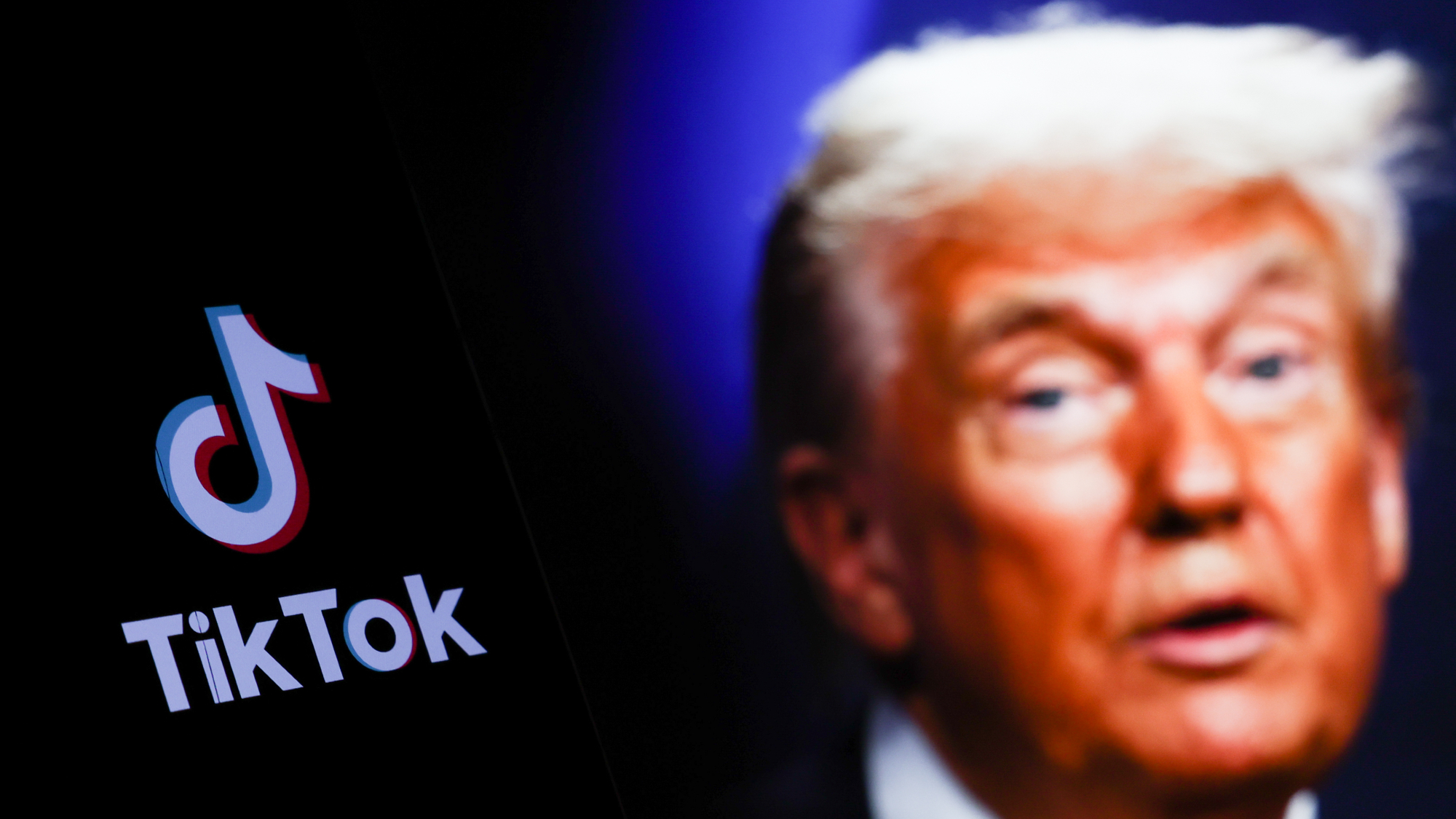Is time up for TikTok in the US?
Five states have banned use of the Chinese-owned app on government devices and Indiana is suing the platform

A free daily email with the biggest news stories of the day – and the best features from TheWeek.com
You are now subscribed
Your newsletter sign-up was successful
Texas has joined Maryland, South Dakota, South Carolina and Nebraska and the US military in banning the use of TikTok on government-issued devices.
In just five years, the Chinese-owned video app has amassed more than one billion active users across more than 150 countries. But while TikTok has become a major news source for millennials and Gen Z adults alike, security concerns have also increased.
In a letter ordering all Texas state agencies to ditch TikTok, Governor Greg Abbott said the app “harvests vast amounts of data from its users’ devices” and “offers this trove of potentially sensitive information to the Chinese government”.
The Week
Escape your echo chamber. Get the facts behind the news, plus analysis from multiple perspectives.

Sign up for The Week's Free Newsletters
From our morning news briefing to a weekly Good News Newsletter, get the best of The Week delivered directly to your inbox.
From our morning news briefing to a weekly Good News Newsletter, get the best of The Week delivered directly to your inbox.
Scrutiny from lawmakers
Nebraska outlawed TikTok from government devices in August 2020, a year after the US military did so. And last Wednesday Texas became the fourth state in a week to implement similar bans, amid a Republican-led push for a TikTok crackdown.
Indiana has gone a step further, suing TikTok for alleged security and safety violations. Indian’s Attorney General Todd Rokita has accused ByteDance, the app’s parent company, of “exposing children to mature content and not disclosing that China could access users’ data”, reported NBC News.

A pair of lawsuits filed last week by Rokita seek emergency injunctive relief and civil penalties from the app.
TikTok is facing “mounting scrutiny from US lawmakers over its data practices”, said the FT, but these security concerns are not new. During his term as president, Donald Trump threatened to ban the app.
A free daily email with the biggest news stories of the day – and the best features from TheWeek.com
In June, the Joe Biden administration ordered a review of foreign-owned apps, a move widely viewed as a warning to the Chinese government.
TikTok has expressed “disappointment” at the latest state bans. In a statement, the company said the crackdowns had been “largely fuelled by misinformation”.
TikTok is on “a path in our negotiations with the US government to fully satisfy all reasonable US national security concerns”, the statement added.
Congress’s next Big Tech target
TikTok appears to be “Congress’s next Big Tech target”, said Vox reporter Sara Morrison. Although the app “has tried to distance itself from its Chinese parent company”, she wrote, “those claims have been undermined by recent reports that say ByteDance has a great deal of control over TikTok and its direction”.
In an article for The Washington Post last month, two Republican senators – Florida’s Marco Rubio and Wisconsin’s Mike Gallagher – justified their decision to introduce legislation that would ban TikTok and other Chinese social media companies from operating in the US.
TikTok and “by extension” the Chinese Communist Party have “the ability to survey every keystroke teenagers enter on their phones”, the senators wrote. Unless the app and its algorithm can be separated from Beijing, its use in the US “will continue to jeopardise our country’s safety and pave the way for a Chinese-influenced tech landscape here”, they argued.
But while “an all-out ban on TikTok in the US is possible”, it feels unlikely, said Forbes. “A lot of water would have to go under the bridge for it to happen anytime soon.”
Aside from some states banning the app on government phones, the federal government has done “little thus far to regulate TikTok”, the site pointed out, “let alone ban it for all US users”.
-
 How the FCC’s ‘equal time’ rule works
How the FCC’s ‘equal time’ rule worksIn the Spotlight The law is at the heart of the Colbert-CBS conflict
-
 What is the endgame in the DHS shutdown?
What is the endgame in the DHS shutdown?Today’s Big Question Democrats want to rein in ICE’s immigration crackdown
-
 ‘Poor time management isn’t just an inconvenience’
‘Poor time management isn’t just an inconvenience’Instant Opinion Opinion, comment and editorials of the day
-
 Moltbook: The AI-only social network
Moltbook: The AI-only social networkFeature Bots interact on Moltbook like humans use Reddit
-
 Are Big Tech firms the new tobacco companies?
Are Big Tech firms the new tobacco companies?Today’s Big Question A trial will determine whether Meta and YouTube designed addictive products
-
 TikTok finalizes deal creating US version
TikTok finalizes deal creating US versionSpeed Read The deal comes after tense back-and-forth negotiations
-
 Is social media over?
Is social media over?Today’s Big Question We may look back on 2025 as the moment social media jumped the shark
-
 Australia’s teen social media ban takes effect
Australia’s teen social media ban takes effectSpeed Read Kids under age 16 are now barred from platforms including YouTube, TikTok, Instagram, Facebook, Snapchat and Reddit
-
 Sora 2 and the fear of an AI video future
Sora 2 and the fear of an AI video futureIn the Spotlight Cutting-edge video-creation app shares ‘hyperrealistic’ AI content for free
-
 Trump allies reportedly poised to buy TikTok
Trump allies reportedly poised to buy TikTokSpeed Read Under the deal, U.S. companies would own about 80% of the company
-
 What an all-bot social network tells us about social media
What an all-bot social network tells us about social mediaUnder The Radar The experiment's findings 'didn't speak well of us'